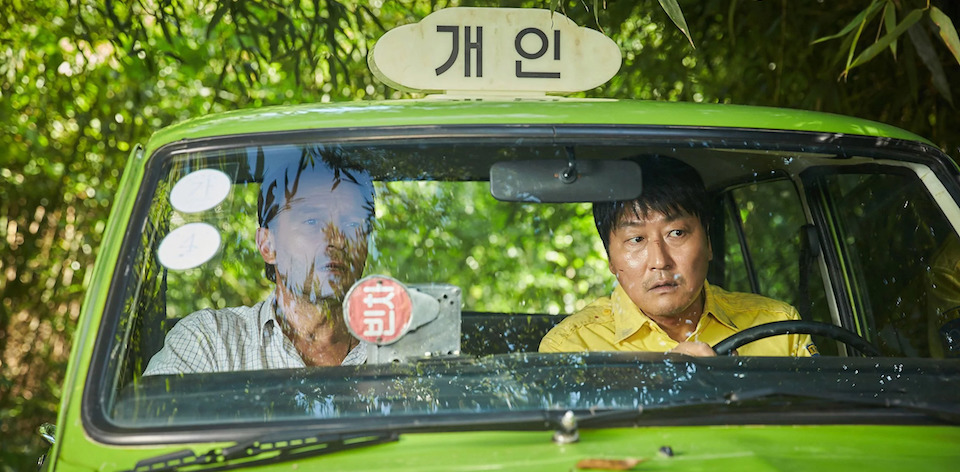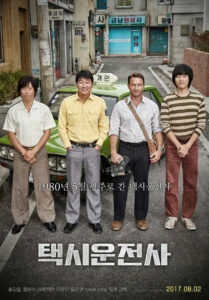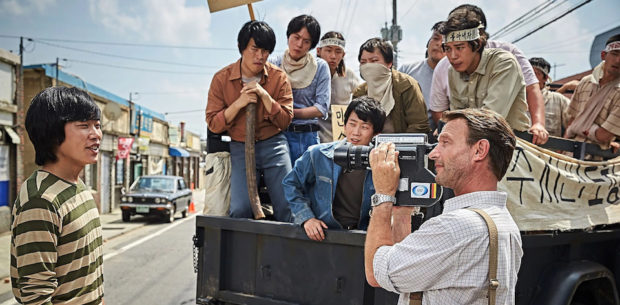In these troubling times, it’s important to remember how easily government can paint villains out of democratic protesters. The Gwangju Democratization Movement in South Korea in 1980 was one such moment in history, where students and other citizens protesting the Chun Doo-hwan government were fired upon, killed, and beaten in a display of military force.
A down on his luck taxi driver from Seoul (Song Kang-ho) accidentally gets caught up in German journalist Peter’s (Thomas Kretschmann) mission to film the Gwangju Uprising, with the intention of exposing the government violence to the world. Throughout the journey, the titular taxi driver is exposed to the truth behind the government’s fabricated stories of violent students, shaking his core belief system and galvanising him into being more than just a mere spectator to other people’s actions.
While the politics are heavy-handed, so was the military response. Jang Hoon’s film, and Eom Yu-na’s screenplay, follows a familiar trope of a non-believer slowly having his perceptions changed. During the deceptively optimistic opening, our taxi driver expresses strong opinions against the protesters, setting up a very simple dichotomy of “us” and “them.”
For the audience the choice is never ambiguous, with sinister music and brutal beatings whenever the Korean military is on screen. Through the titular taxi driver, the film reduces the movement to a personal level, following his personal changes and touching on the lives of students like Jae-sik (The King‘s Ryu Jun-yeol), whose naivety is shattered.
Which isn’t to say we don’t get a sense of the scale of the clashes. The photography of Go Nak-seon (Inside Men) almost takes on a vérité quality, mirroring the footage of the camera that Kretschmann’s character is always toting. Tense roadblock clashes, heartbreaking pans across bloodied hospital floors, and an unexpected (and slightly indulgent) car chase sequence keep the momentum going throughout. Song Kang-ho gives a marvelous performance, turning from comical buffoon to captivating and dramatic on a dime. Kretschmann comes off as a jerk more often than not in comparison.
Unlike certain world leaders, A TAXI DRIVER (택시 운전사) does not claim that there was blame to be had “on all sides,” instead squarely pointing a finger at the strong arm of the government and their ability to subvert the truth. As relevant and powerful today as it was over 30 years ago.






